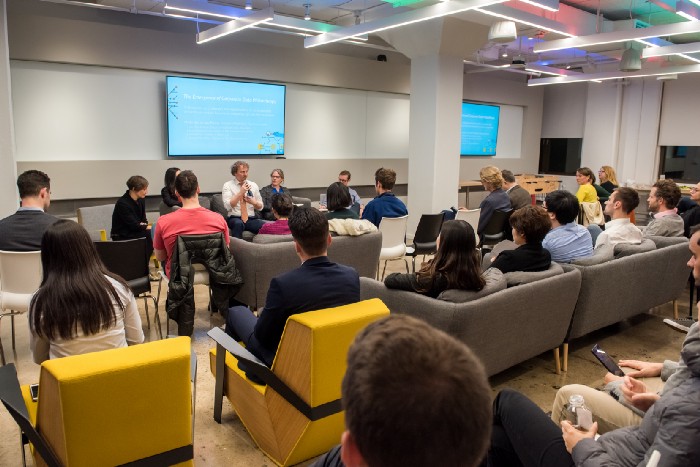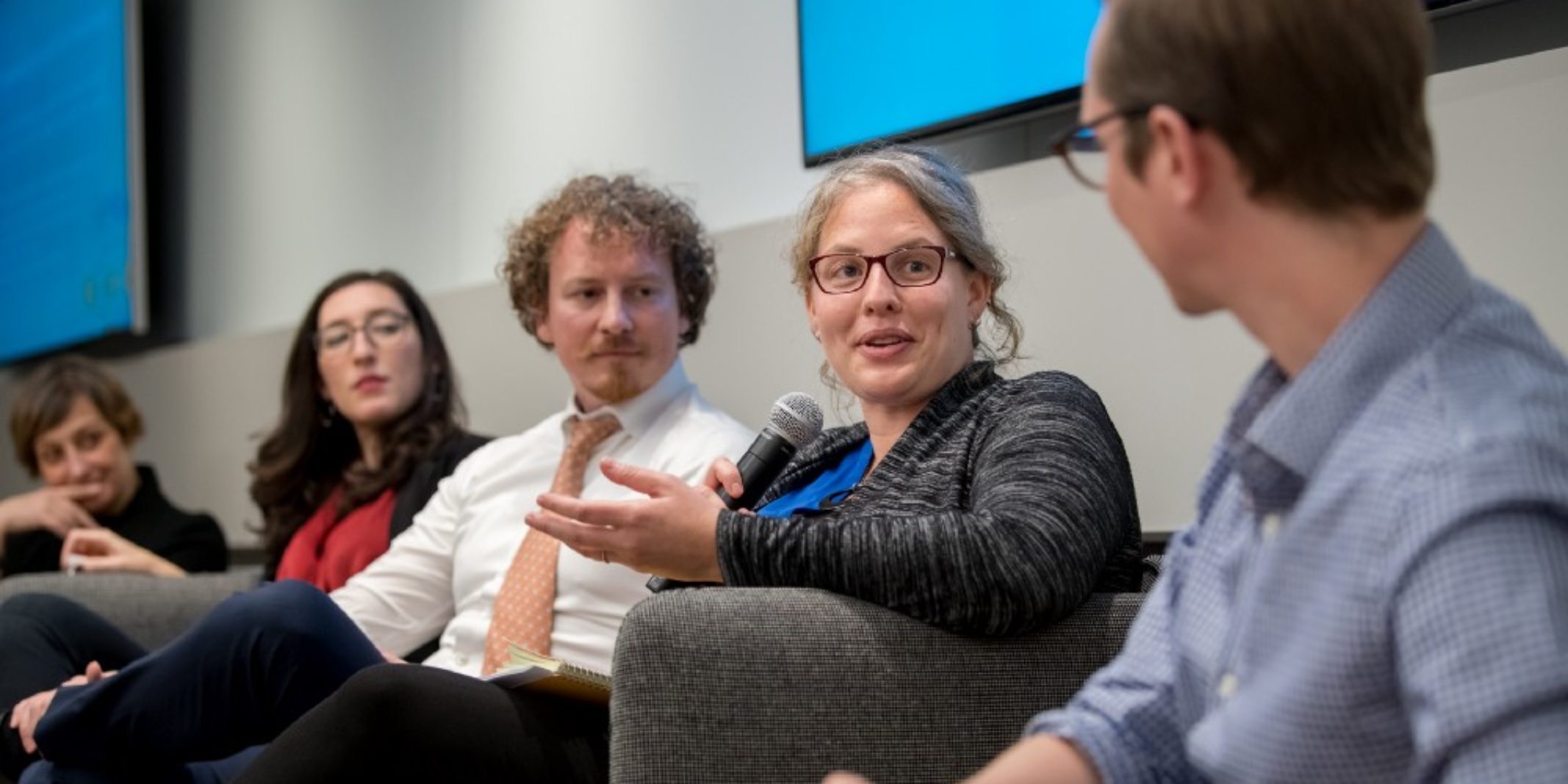At least once at every Data for Good conference, our team has the nagging sensation that a project being presented sounds eerily similar to another one we stumbled upon sometime within the past year. After connecting with our peers, we know we’re not alone in this feeling.
Data for Good initiatives aim to make the world a better place by responsibly and intelligently supporting mission-driven organizations, often by helping them achieve their vision more efficiently. But if these initiatives keep engaging in isolated one-off projects in their own bubbles rather than scaling and improving upon solutions, are they really making a sustainable impact on their communities?
With such a vast need in the world for skilled data science talent and not enough data scientists to fill it, it’s clear that none of us should be spending precious time and resources reinventing the wheel when we don’t need to be.
Furthermore, in the spirit of doing good, it is all of our responsibility to ensure nonprofits’ needs are being met. If each Data for Good effort is trapped in its own bubble, how can it reliably connect a nonprofit with the most relevant resources, especially if the problem is outside of that organization’s expertise?
Last November, Data Clinic took a step toward addressing these challenges by hosting an event on the Emergence of Corporate Data Philanthropy — the growing movement of data and tech-related corporate social responsibility. The talk, moderated by Jake Porway of DataKind, featured our very own Rachael Weiss Riley alongside fellow panelists Saška Mojsilović of IBM Science for Social Good, John Paul Farmer formerly of Microsoft Cities, and Leah Siskind of Uptake.org. Through the lens of their unique Data for Good models, panelists shared the lessons learned and successes of giving back through data, talent, resources, and capacity building.

In response to the duplication and lack of clarity around efforts that exists in the Data for Good world, Rachael announced that in addition to helping nonprofits, government agencies, and academic institutions have a greater impact on the communities they serve, we at Data Clinic are also committing ourselves to helping build a more formal corporate data philanthropy community — one that is transparent, collaborative, and empowering:
Transparent
It’s unclear exactly which for-profits have a corporate data philanthropy initiative. We should understand what organizations exist, what their models are, what their unique skill sets are, and what kind of projects they’ve worked on. Building a living landscape that helps us help nonprofits is critical to advancing beyond the status quo.
Collaborative
Corporate data philanthropy is still a nascent sector, and there are a lot of lessons to be learned. On top of sharing lessons on how to be operationally more effective, we can begin to progress away from duplicative efforts through a more collaborative approach to developing solutions. Being acutely aware of the kinds of projects our peers have worked on, we could proactively connect with each other where appropriate to build off each other’s advances, partnering toward even more innovative solutions.
Empowering
The ultimate goal is to help mission-driven organizations reach their goals and increase their impact on the communities they serve. No request should go unanswered. When a corporate data philanthropy initiative receives a request that doesn’t align with their expertise or resources, we should, through the transparency of our community, know exactly to whom the request should be referred, empowering our peers to make a difference for that nonprofit.
The enthusiasm at the November event for creating this type of action-oriented network was palpable. The audience stayed well after the conclusion to connect with their peers, and dozens of organizations signed up to be updated on next steps for the Corporate Data Philanthropy collaborative.
To build a community that actually focuses on action and delivers tangible benefits to both its Corporate Data Philanthropy members and our ultimate beneficiaries — nonprofits and their communities — we seek to shape it from the ground up in partnership with the many initiatives that have already thrown their hats into the ring.
Join Us
To join the growing movement and help us amplify the impact of the data for good sector, contact us at dataclinic@twosigma.com.



